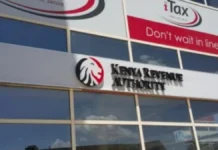According to the Energy and Petroleum Regulatory Authority (EPRA), public charging stations for electric vehicles (EVs) will be installed on highways, with one station every 25 kilometres.
The energy regulator says the stations will be on both sides of the road under new guidelines on EV charging and battery swapping that go into effect on September 1.
“For long-range EVs (like long-range SUVs) and heavy-duty EVs such as buses/trucks, there should be at least one fast charging station with appropriate charging infrastructure at every 100 kilometres, one on each side of the highways/road located preferably within/ alongside the charging stations,” EPRA says.
Meanwhile, charging stations for heavy-duty EVs must be located within bus stops within cities, and swapping stations for buses and trucks are not required within cities.
EPRA says it will maintain a national online database of all public charging stations operated by electricity distribution companies.
Anyone planning to install a public charging system must first apply for an EPRA electricity retail supply licence.
Private charging infrastructure, on the other hand, would be free to decide on charging specifications based on the needs of its in-house company, such as buses.
“Charging points shall be certified and type-approved and tested by KEBS or any other accredited agency. Private charging infrastructure shall be operational only after inspection, testing and issuance of a completion certificate issued by a licensed electrical contractor or inspector,” EPRA says.
Battery swapping stations will meanwhile have their infrastructure tested and certified as per standards developed or approved by KEBS for safety.
“Every battery swapping station shall only be operational after inspection, testing and issuance of a completion certificate issued by a licensed electrical contractor or inspector,” the regulator adds.


















